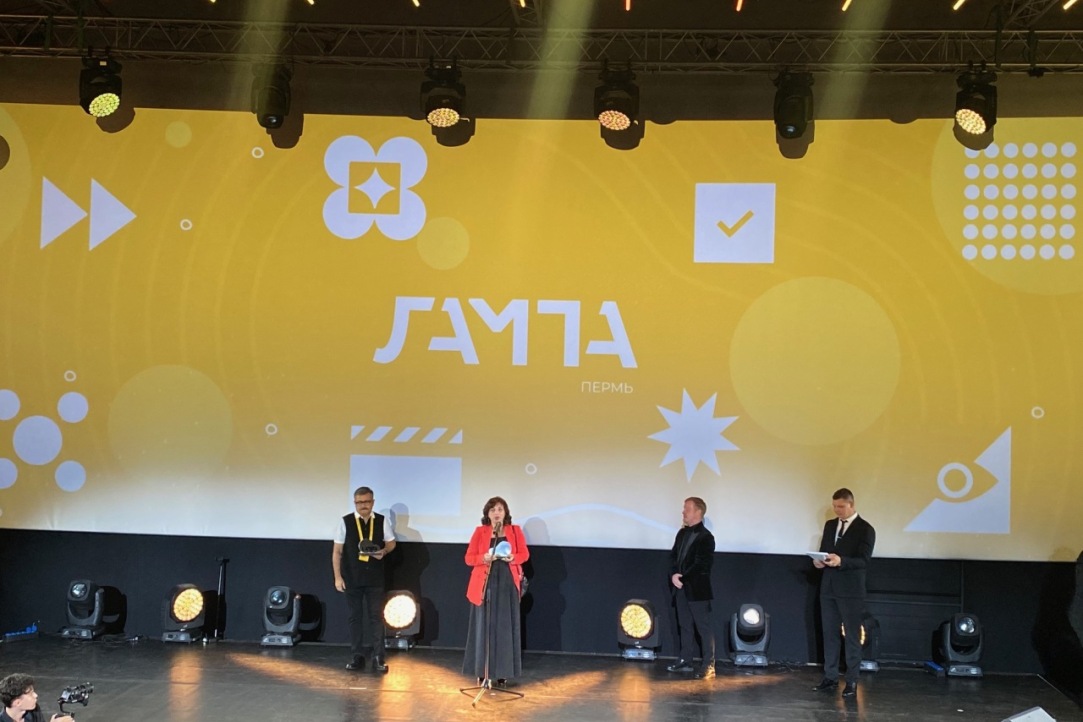Videos by the Media Accelerator for NGOs at the Faculty of Creative Industries Receive Awards at LAMP International Film Festival

On October 8, 2023, the award ceremony of the LAMP international impact film festival took place in Perm. In the ‘Social video advertising’ category, the jury recognized ‘Remove the stigma of HIV’ (directed by Maria Koneva, produced by Vadim Dolgikh) as the best video about discriminated people with HIV. Two other videos from the project – ‘Still Life’ (directed by Boris Chertkov, produced by Eleonora Klementyeva) about foodsharing and ‘Dobrovorot’ (directed by Maria Koneva, produced by Vadim Dolgikh) about secondhand clothing consumption – were also winners at the festival.
All three of these winning videos consider some of the most important and unusual phenomena of modern life. In the case of the stigma attached to HIV infection, the role of patterns and fears leading to discrimination against patients with this virus is extremely high due to widespread ignorance about the ways in which the virus is transmitted and the infection risks. The food sharing story highlights modern technology for redistributing excess products remaining from restaurants, supermarkets and hotels to those who urgently need them – poor families and the elderly. The film about the secondhand consumption of high quality clothing also features ideas about the reasonable consumption of the earth's resources, since people annually produce much more goods than required, with some of these goods never being sold or used.
Students from different HSE University faculties come together to take part in the ‘Media Accelerator for NGOs’ project. They join the project in order to develop their knowledge and acquire the skills of film and video production for a social product. Their creative mentor and the curator of each creative group are well-known professionals in cinema and advertising, but students are fully involved in the script development, and work as assistants to the experts during production.
According to Anastasia Serova, 3rd-year student of the Media Communications programme, she joined the project at the stage of creating scripts for NGO videos, and developing slogans to promote their philosophy. This experience was valuable practice for her, while participating in the project, meeting with experts and becoming involved in a worthwhile cause turned out to be a significant event in her life.

The project is often an important step in a student’s career path –after taking part in the project, many students choose to work in professional film studios and video advertising.

Project manager, Deputy Dean of the Faculty of Creative Industries
‘This recognition by the LAMP professional jury confirms the fact that the Media Accelerator project and its team have achieved significant results in working with NGOs promoting social ideas or services. Our students have been developing their advertising skills since 2018, and these amazing world class videos are a great example of collaborative work.’
LAMP is the only impact film festival in Russia, a system of socio-cultural events that highlight volunteerism and charity at different venues and for different audiences. The festival is multi-format: it features short films and documentaries, animation, music videos, videos and social advertising.
‘Media Accelerator for NGOs’ is a project of the HSE Faculty of Creative Industries. Thanks to the project, non-profit organisations can receive high-quality audiovisual products to attract attention to some of the modern problems of society and find solutions to them.
See also:
A Journey through Childhood, the Essence of Raisins, and Other Films from HSE University
One documentary and six animations created by HSE Art and Design School students were shortlisted at this year's St. Anna’s Festival. The annual Young Cinema Forum attracts the attention of aspiring film professionals from all regions of Russia, as well as the CIS, Europe and America. Students of the HSE Art and Design School told the News Service about the ideas behind their works, which were selected by the professional jury, and what it was like to work on them.


